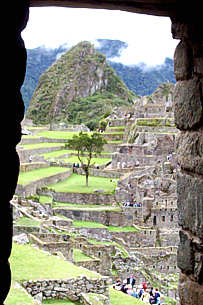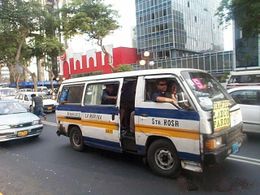On Sunday, October 21st, the whole of Peru is under house arrest. Nobody may leave their home; no business may open; even the homeless will be rounded up and confined to sports stadiums. Police and military will patrol the streets to enforce the “immobility order”.
The reason for this unprecedented measure is the National Census, run by the governmental statistics institute INEI. In one day, they plan to gather information on all of Peru’s estimated 27 million inhabitants.
Tourists and business travelers will not be exempt from the measure, which will be in force from 8am to 6pm, and the Ministry of the Interior has recently reversed a previous decision and stated that anyone found out of their home will be fined.
The only exemptions are for businesses considered of absolute priority, such as hospitals and power stations. No supermarkets or stores may be open during the hours of curfew, and all transport will be suspended.
In previous declarations, INEI stated that international and internal air transport will proceed, and that taxis will be permitted to operate to and from airports – but not for other routes. However, a communiqué issued today calls that into question, stating that “aircraft… may not transit… national territory”.
Foreigners present an unusual situation, and INEI have yet to respond to The Lima Bean’s inquiries regarding how the rules apply to them. We advise that all tourists and business travelers ask their hotels what arrangements will be made.
Given that all stores and restaurants will be closed, INEI have advised that anyone who will be in Peru on the 21st of October stock up on food and other necessities a few days in advance, to prevent shortages due to sudden buying.
In addition, the purchase and consumption of alcoholic beverages will be outlawed for 24 hours, starting at 6pm on Saturday October 20th.
UPDATE
The directors of INEI have informed The Lima Bean that no exceptions will be made for foreigners, be they residents, tourists or business travelers. All persons must remain wherever they spent the night of October 20th, until 6pm on October 21st. They may leave and pass freely on the streets on the early morning of the 21st, but must then return to their hotel, where they will be allowed to leave only in case of emergency such as fire, or if they have a confirmed outbound ticket on an international flight. There will be zero tolerance for anyone found outside without permission.
Persons staying at hotels classed with three or more stars will be assessed by hotel staff, while those staying at other establishments or in private homes will be assessed in the normal manner.
In rural areas, the census will take place from October 21st to November 4th.
Filed under: Around Peru, Dangers, Lima, Opinion, Politics, Scandal, Travel | 14 Comments »






